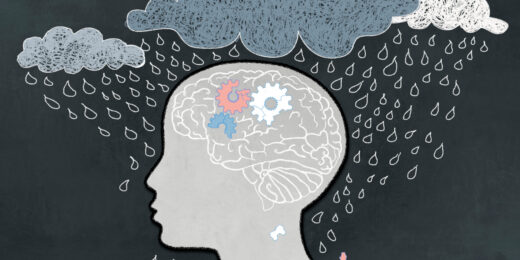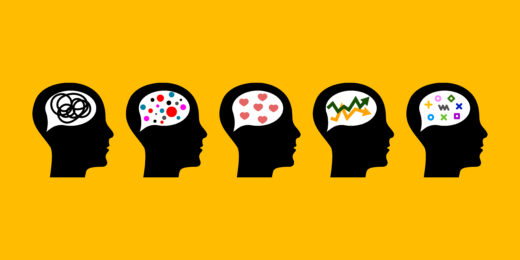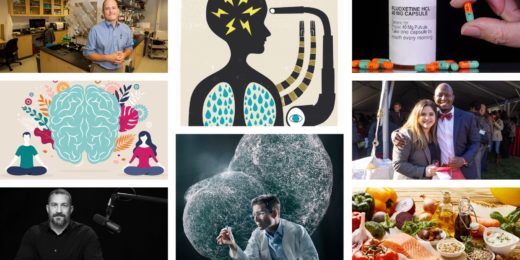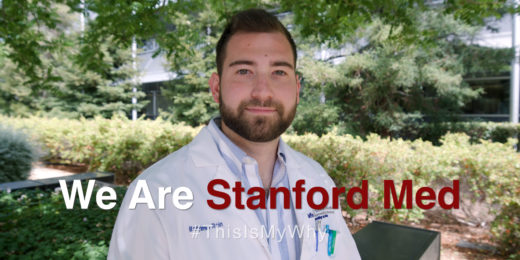Stanford Medicine researchers showed that risk of dementia increases for people previously diagnosed with depression.
Category: Psychiatry & Mental Health
Answers to your menopause (and perimenopause) questions
Leah Millheiser, MD answers basic questions, shares little-known facts and encourages doctors to learn about this biological phase.
Satisfaction with online dating app depends on what you’re looking for
A new study shows that some Tinder users access the the app to cope with negative emotions, but they may not find what they’re looking for.
Scientists talk aging, mental health and diet at Health Matters
Scientists and doctors discuss aging, healthy diets and new treatments for mental health at this year's Health Matters event.
Binge eating linked to habit circuitry in the brain
People with binge eating disorders have differences in their brains’ habit circuitry, which may explain why these behaviors are so persistent.
What does it mean to be neurodiverse in medicine?
Stanford Medicine neurodiversity and autism expert Lawrence Fung discusses what it means to be neurodiverse in medicine.
How hypnosis can alter the brain’s perception of pain
Stanford Medicine physician David Spiegel, MD, explains how hypnosis can be effective against pain and why some people are more hypnotizable.
Heartbeats and Hiccups: Weaving together advocacy and mental health
Two health care providers discuss the advocacy work that fuels them outside their role and how it intersects with mental health.
‘Cyclic sighing’ can help breathe away anxiety
Stanford Medicine researchers showed that five minutes a day of breathing exercises can reduce overall anxiety and improve mood.
Looking for love in all the wrong hormones
Researchers have found that oxytocin, commonly known as the "love hormone" may not be crucial for the social behaviors it's known for.
A 2022 recap: Most read, most viewed and most popular on social media
As the year comes to a close, we're sharing the most-read stories, most-viewed videos and most popular stories on social media of 2022.
Screen time: The good, the healthy and the mind-numbing
Researchers at Stanford Medicine are exploring the impact of screen time and how to create solutions that support health.
We are Stanford Med: #ThisIsMyWhy with Ben Rein
Postdoctoral scholar Ben Rein is equally passionate about his neuroscience research and educating the public about science via social media.
Heartbeats and Hiccups: Serving those who serve
Stanford Medicine human resources leaders speak to their experiences in the military and their trajectory to medicine.
New visions for mental health care
Researchers, policy makers, clinicians and others convened to discuss new approaches and innovations to improve mental health care.
Unconventional Paths: From monasteries to medicine
Stanford Medicine primary care physician Angie Chen was once a Buddhist nun, now she practices medicine to help others heal.

















